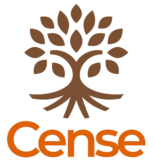
Self-knowledge is a great asset, however the reason we often hire an external consultant is because we know a part of ourself so well that it becomes difficult to see other parts of who we are.
We obviously have a bias toward the role of external consultants because that’s what we do, but we also recognize that part of role that we are often asked to play can be filled by different people or sometimes the same person playing many of them.
We refer to three C’s: Colleagues, coaches, and consultants. These are not mutually exclusive from one another and can be separate or combined. In each case, however, the role is focused on specific tasks that we want to highlight in helping you identify what best serves the particular situation or problem set you face.
Colleagues
Perhaps the most neglected role of the three are colleagues (or peers). A colleague is someone who works within the same field, department, team or organization as you and can provide feedback and perspective on the work you do and your performance. Because they know the work, they can speak to technical issues very well. However, because they are close to the work (and maybe you) they may include the same biases and limits to perspective as you do, too.
Colleagues offer the following:
- Deep knowledge of the situation, context, and circumstances of the work. They know what you know and experience what you experience. There is little need to spend extra time empathizing with your situation.
- This familiarity allows for more quick-to-start and nuanced conversations about issues.
- Familiarity also allows for great compassion: it’s easy to talk with your peers about issues that might seem too far removed from others.
- This familiarity also brings the same ‘blind spots’ and potential prejudices around actions, behaviours, policies, and possible outcomes. This can limit what is ‘seen’ and what is proposed.
Coaches
When you think of the highest performing athletes do you think about their coach? They all have one.
Athletes know the value of coaches because it’s only through that blend of expertise, motivational energy, and shared commitment through feedback that they can improve. The same is often true for organizations and individuals.
A good coach provides:
- Someone on your team who is committed to the same project as you. Their success is yours.
- Expertise in performance and how it relates to your specific industry or context.
- A more intimate relationship in that they are focused on you (or your organization) and thus is more sensitive to its ‘moods’ and rhythms than someone who is more distant.
- A coach has a separate role from who they support so, unlike with colleagues, there is less confusion and more clarity about what specific benefits a coach can and will provide without the potential for it to be conflated.
Consultants
A consultant is like a coach in that they bring an outside perspective – even more so.
A consultant is someone who is freed from the specific demands associated with the role, outcomes, and processes associated with your work and offers expertise and a different perspective on what you do. Many times we are so engrossed or familiar with what we are doing that we are unable to see new possibilities or consider alternative pathways for working.
Consultants provide many distinct benefits:
- A consultant may not have specific domain expertise as your organization.
- Alternatively, a consultant may have deep expertise in the domain you work in, but less in specific processes. They might also possess both. In every case, their value is in separation from the day-to-day activities of your work. This provides a more dispassionate view of your work. (Note: we don’t believe it’s necessarily more objective, just different — we all have biases).
- Consultants can provide tactical and strategic advice much like a coach but without the closeness to their client and the same investment in the work. This isn’t to say that consultants care any less for the success of their clients, rather they are not part of the team and thus are not affected by the same fears of failure or concerns as a coach is.
- Because consultants work at a distance they also are more likely to be versed in methods, tools, knowledge and practice skills that allow them to work well with groups who are unfamiliar to them (yet are similar in need or content expertise). This allows them to be bridge-builders within and across organizations and networks more easily.
Having others help us to know who we are, support our work, and provide expert advice is invaluable. Whether you are seeking to “level up” or simply maintain your focus and performance consider bringing in someone who can help you go further and cheer you on.
Whether its your peers, a coach, or a consultant you’ll find that long journey to excellence and innovation is far less lonely.
If you work with human services and systems and want someone who might serve to motivate you and help you to learn, we might be able to help. Contact us and let’s talk about coaching, consulting, and community.

